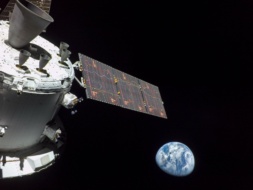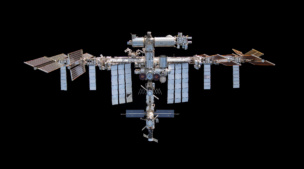The Pentagon’s declining budget request for the Space Force puts the US at risk of ceding leadership in space to China, according to a letter released Thursday by the National Security Space Association.
By the numbers: The administration’s fiscal 2025 budget proposal for the Space Force is the first since the service’s founding in 2019 that has not requested an increase.
- The FY25 request is $29.4B.
- That’s about $600M less than DoD’s FY24 request of $30B.
Less money, more problems: That discrepancy has NSSA, a non-profit that promotes national security space priorities, up in arms, alleging that the decreasing request “signals complacency” to allies.
The two-page letter, written by Mike Tierney, NSSA’s chief of legislative affairs, and Chris Williams, the chair of NSSA’s Moorman Center for Space Studies, didn’t mince words.
“The reduced FY25 budget request is not merely insufficient—it is shortsighted,” they wrote, arguing that the US losing its leadership position in orbit could hurt everything from intelligence collection to the economy.
The elephants in the room: While the US government is seeking to cut its national security space spending, China is charging ahead, Tierney and Williams wrote. From ASAT weapons to surveillance to a reusable space plane, Beijing is making progress on its ambitious space agenda, though its funding top line to do so is not clear.
The letter also noted that the budget does not fund a way to protect satellites in LEO from a potential Russian space-based nuclear ASAT, news of which became public about a month before the budget release.
What’s next: The ultimate funding level will be up to Congress, where Democrats and Republicans are also sparring over the idea of parity—matching any defense plus-ups with comparable non-defense budget boosts. It’s likely to be a while before we know the final answer, since lawmakers are widely expected to pass a continuing resolution and punt any decisions until after the presidential election.




